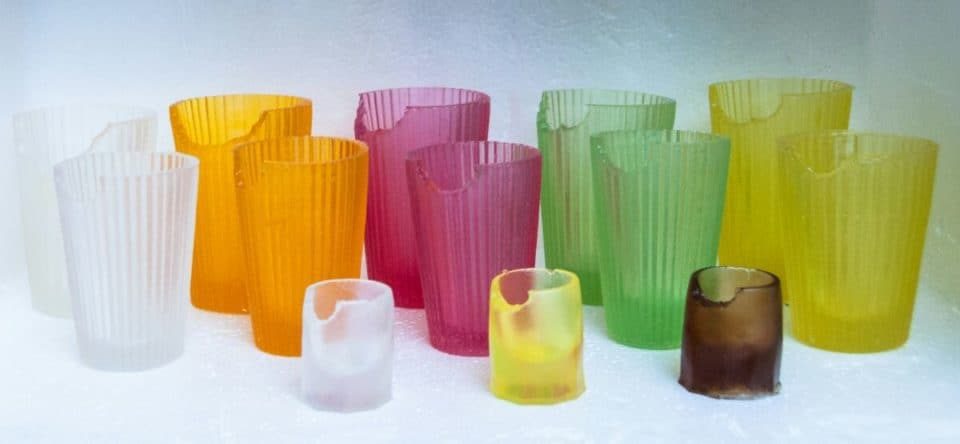Welcome urban nomads! Today I will be talking about how the local Balinese in Bali have taken up seaweed farming after losing their tourism jobs due to the Covid-19 pandemic. As the corona virus continues to paralyses the tourism industry, these Balinese locals have therefore continued to reinvent themselves, depending on the sea once again to tide through these difficult times.

When tourist think of Bali, beaches usually come into mind
Seaweed farming has had a long history in Bali, but it has faded due to the rise of the tourism sector. This is because seaweed farming is a tough and tiring jobs which yield lesser returns as compared to being employed in the tourism sector. However, many who have lost their jobs are returning to this industry again in hopes of earning income to feed their families (Pickering et al., 2006). Here, these seaweeds go beyond simply another crop to be harvested and exploited, but it has been used for environmental sustainability. Local governments have encouraged the revival of this initiatives as it can be used to tackle environmental problems ranging from carbon emissions to plastic waste pollution.

Sea weed farming at Villa Nusa Lembongan
Bali is extremely suitable for seaweed growth due to the protection by the reefs which can absorb wave impacts, a warm temperature of about 28 degrees and Salinity at 30 percent; all of which are favorable for the growth of this macroalgae. These sea weeds are grown in straight lines , attached to pieces of ropes and stretched over iron bars which run over the seabed (Hurtado et al., 2013). These seaweeds when cultivated at scales can grow about 60 times faster than any land growing plant, transforming it into a carbon sink to help combat climate change (Pickering et al., 2006). This can be converted into biofuel to meet energy demands, reducing the need for more energy invasive resources. Seaweeds do not occupy precious land space, does not require fertilizers or create deforestation during harvesting, making them a suitable candidate for suitable development (Lane, 2019).

An underwater view of a seaweed farm
In a race for a sustainable substitute to plastic, Indonesia have placed their bets on seaweeds. Seaweeds can help to alleviate the high plastic use in Indonesia, which is the world second largest, just behind China (Hurtado et al., 2013). Seaweeds can be processed and made into food containers, which are biodegradable. They can even be edible, replacing conventional single use plastic containers.

The treatment of seaweed into a sustainable source for biofuels
In fact, a small group of companies have been spearheading the switch from plastic to seaweed containers, suggesting that it is very possible for larger companies to follow suit in this environmental movement (Lane, 2019). Business enterprises like Evoware have used seaweed to create edible seaweed cups which have a wide range of flavors, from orange to green tea. It also produces edible food wrapping and single-use sachets, which are usually found in instant coffee or food condiments (Lane, 2019). As such, it helps to support tour guide/ divers who have lost their jobs during the Pandemic. This highlight how this initiative is more than simply just a corporate venture, but one which is concern about generating a living from “sustainable sources”

Indonesian startup Evoware is producing edible glasses from seaweed cultivations
In fact, this has also created a new generation of seaweed farmers who looking to tap into the possibility of eco-tourism for an increase in revenue. Tours can not only generate revenue, but also using seaweeds as elements in a spa to detoxify can also help these seaweed farmers earn additional income.
An example of a seaweed scrub that can be used for spas
To conclude, as tourism numbers have decreased, innovative methods have emerged which can compliment tourism in a more sustainable way. Seaweed has been a core focus in ecotourism by offering snorkeling trips for tourist to see the seaweed farms. Seaweed are big businesses and there are multiple ways to make money from it sustainably. Who knows, perhaps in the near future, Bali would not only be known for its pristine beaches, but also its seaweed farms; which could very well be the new reality amidst the Covid-19 pandemic.
Short video on Bali seaweed farming
References
Hurtado, A. Q., Gerung, G. S., Yasir, S., & Critchley, A. T. (2013;2014;). Cultivation of tropical red seaweeds in the BIMP-EAGA region. Journal of Applied Phycology, 26(2), 707-718. doi:10.1007/s10811-013-0116-2
Namudu, M. T., & Pickering, T. D. (2006). Rapid survey technique using socio-economic indicators to assess the suitability of pacific island rural communities for kappaphycus seaweed farming development. Journal of Applied Phycology, 18(3), 241-249. doi:10.1007/s10811-006-9023-0
Lane, J. (2019). Plant and algae-based tuna, lignin plastic alternative, rice husks in architecture, seaweed T-shirt and lube, jute and kenaf composites and more: The Digest’s top 10 innovations for the week of march 21st Newstex.
